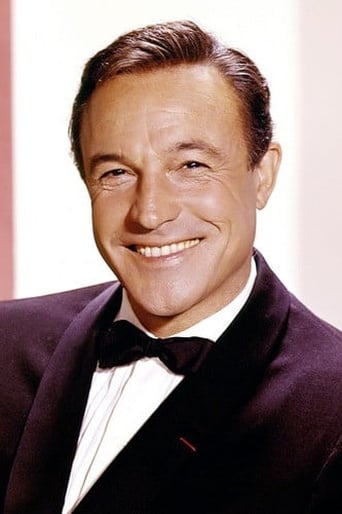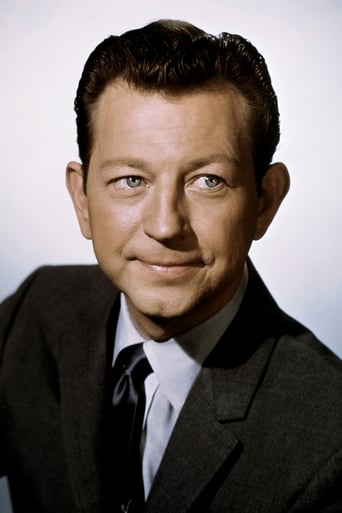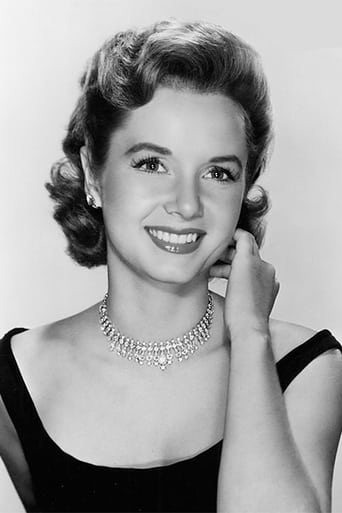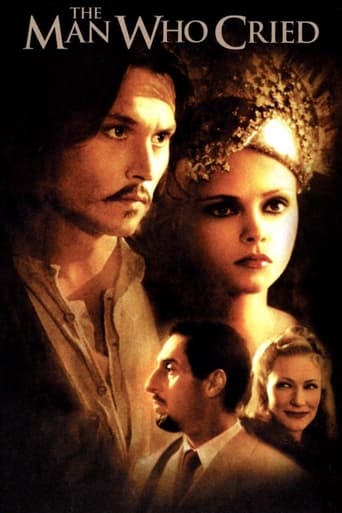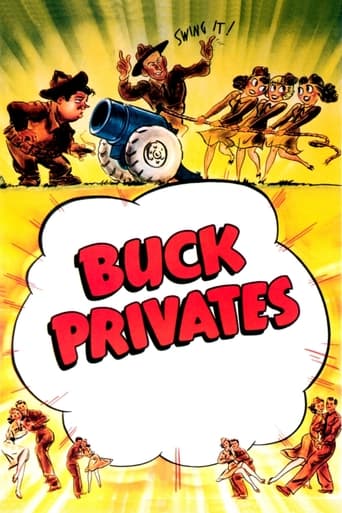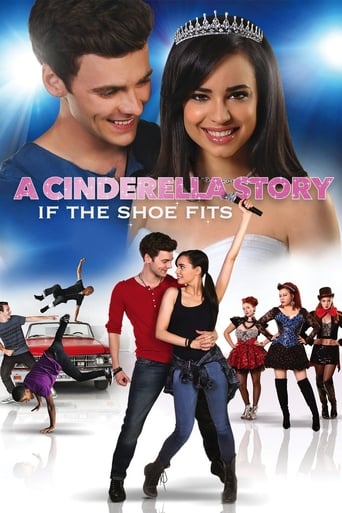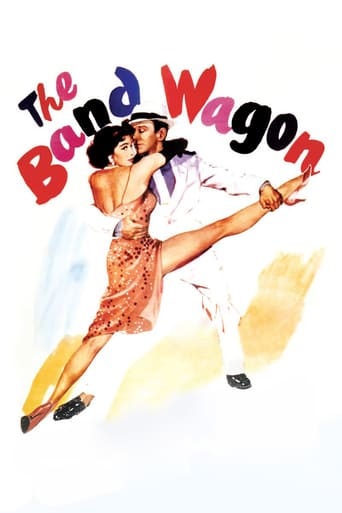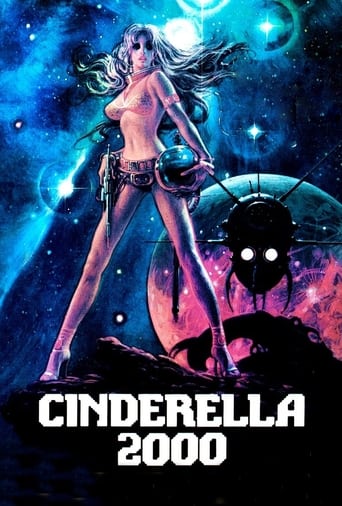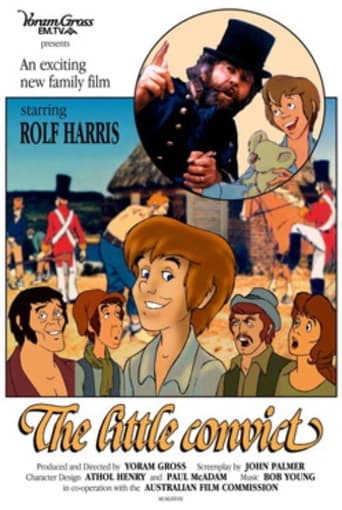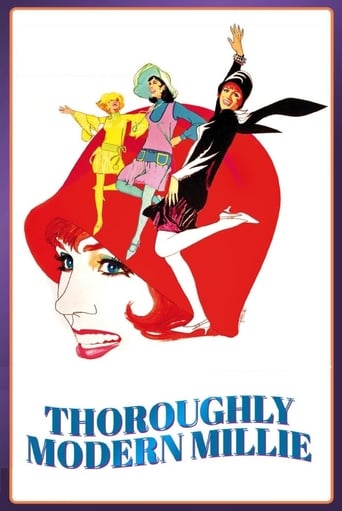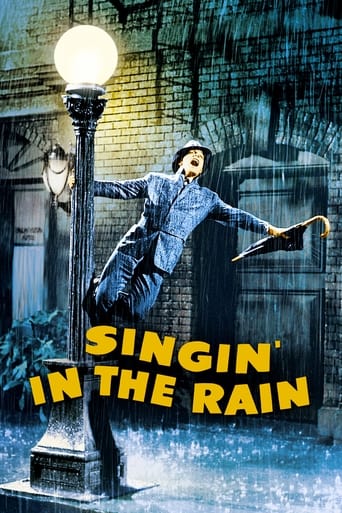
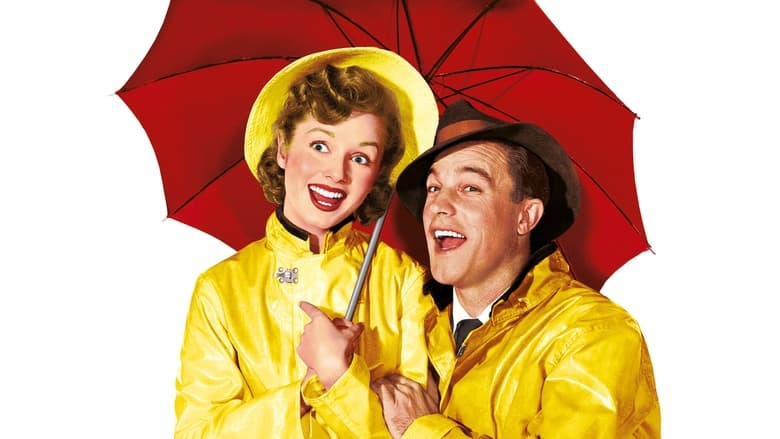
Singin' in the Rain (1952)
In 1927 Hollywood, a silent film production company and cast make a difficult transition to sound.
Watch Trailer
Cast
Similar titles
Reviews
Far from Perfect, Far from Terrible
It's an amazing and heartbreaking story.
The movie turns out to be a little better than the average. Starting from a romantic formula often seen in the cinema, it ends in the most predictable (and somewhat bland) way.
True to its essence, the characters remain on the same line and manage to entertain the viewer, each highlighting their own distinctive qualities or touches.
'Singin' In The Rain (1952)' is one of the most memorable and enduring movie musicals of all time, remaining a classic even after all these years. It is also, despite my well-documented reservations with the genre, one of the best of its kind, especially when it comes to handling its sing-song scenes. All of its song-and-dance numbers are diegetic, or otherwise make total narrative sense, and only a couple seem to slightly break from the presented world-space, with the occasional abandonment of actual scenes to long tap routines feeling like there'd be at least some objection from those being fobbed off in favour of dance - or those wandering why on earth the characters are dancing like madmen at these occasionally inappropriate times - and the players sometimes making eyes at the 'camera' as opposed to anyone within their vicinity. There's also one number in which three people simultaneously know choreography to a dance they're making up on the spot, though this isn't a massive issue as they're all professional dancers and doing fairly standard tap for most of the piece - plus, the song in question is pre-existing and so the dance could be inspired by it. Indeed, only two songs were actually written for this flick, despite the fact that most have become synonymous with it. Even the title song was already around, which has certainly been tied to its segment in the film but is actually supposedly the inspiration for the entire picture (somehow). What's most striking about the flick, for me, is its story. Sure, the musical aspects are wonderfully done and certainly some of the best of their kind. I can't express how impressed I was when Donald O'Connor ran up a straight wall and back-flipped off it. Sometimes, these dance-numbers go on for too long, though, especially towards the latter half once the choreography starts to repeat. They actually begin to detract from the narrative slightly. While the 'Broadway Ballet' sequence is a visual treat and a remarkable achievement, it is totally superfluous and kills the pacing. It takes away from the most important aspect, which is - and always should be - the story. Still, we're back on track before long. The tale is an interesting and rather well-told one, despite some unfortunate signs of its age. The silent star pulled into the sound era has been used in a number of films since this, though this puts its focus more on creating the first movie musical and therefore becomes a slightly meta experience. It is also nicely satirical, too, a self-aware look at cinema history seen from fairly fresh eyes (the fifties weren't far off from the late twenties, after all). It's this light-tone and moments of genuine humour that keep the piece afloat, with an endearing cast caught in an entertaining quest to keep their careers afloat. It's an enjoyable experience that provides all the spectacle you'd expect but does sometimes get a little too caught up in it. 6/10
Call me confused, but I have a hard time with this film. I appreciate the masterful singing and dancing in the film and can agree the vibrant colors were eye catching, but how is this the Greatest Musical of all time and the #5 movie overall according to AFI? I am truly baffled how this is rated so highly. The plot was tremendously weak, but that makes sense when you learn the songs were written before the movie. I thought the film was fun and well-paced until that Broadway "Gotta Dance" number hit. I feel like that sequence is playing on a constant loop in certain inner circles of hell to torture lost souls. It's honestly a violation of the 8th Amendment because watching it was "cruel and unusual punishment" for the viewer. I enjoyed Debbie Reynolds and Donald O'Connor, but the whole film felt like a ego-trip for Gene Kelly. He was simply too much even if the title song was iconic. Count me out as a fan of this film along with many younger viewers. I teach a high school film class where we view 20 of the top films of all time. This film is routinely rated in the lower portion of the list by our class. I wish AFI would update their list so a different film could win the title o the Greatest Musical so I could show something else.
Highly recommended,done very well. The dance sequences in the film are incredible. The camera angles and shots are unlike you've seen before.Gene Kelly and Debbie Reynolds take you to another world, you will feel as if you apart of this artistic masterpiece. If you haven't seen this, I don't know what you have been doing in your life.
Copyright 11 March 1952 (in notice: 1951) by Loew's Inc. A Metro- Goldwyn-Mayer picture. New York opening at the Radio City Music Hall: 27 March 1952. U.S. release: 10 April 1952. U.K. release: May 1952. Australian release: 27 June 1952. 102 minutes.SYNOPSIS: At the advent of talkies a popular silent screen team is hamstrung by the fact that the female partner has a voice like a berserk chipmunk.NOTES: Would you believe that Singin' in the Rain — the most popular, the most critically acclaimed musical of all time — did not receive any prestigious Hollywood awards. In fact the film had only two nominations, the first for Jean Hagen as Supporting Actress (she was passed over by Academy members in favor of Gloria Grahame in The Bad and the Beautiful), and the second for Scoring of a Musical Picture in which category Lennie Hayton lost out to Alfred Newman's With a Song in My Heart.The film didn't fare any better with contemporary critics. Although it placed in number three position (after The Atomic City and My Six Convicts) on his supplementary Hollywood movies list, it didn't make Bosley Crowther's Top Ten Pictures of 1952 for The New York Times. At least the film came in at the number eight spot both on The National Board of Review's Best American Films of the year and the annual Film Daily poll of the nation's film critics.MGM production number: 1546. Shooting from 18 June 1951 through to 21 November 1951, plus one day, 26 December 1951. Rehearsals started on 12 April 1951. Ernie Flatt worked with Debbie Reynolds on her tap dancing, while Kelly, Donen and Haney started on the staging of the numbers.Kelly explains that the two directors, whilst always working in close collaboration, sometimes worked individually as well as in tandem. Two sound stages were often used simultaneously, with photographer Rosson rushing from one set to the other. Kelly says he concentrated on directing the musical numbers, whilst Donen usually handled the straight story material.Two numbers were deleted before the first preview in order to speed up the story: "You Are My Lucky Star" sung by Betty Royce whilst Debbie Reynolds gazes at a billboard of Kelly; and Kelly singing and dancing "All I Do Is Dream of You".Negative cost: $2,540,800 (which was over budget by $620,996 mostly because the "Broadway Ballet" which had been estimated at only $80,000 was considerably extended when Donald O'Connor was unable to participate in the number due to a prior television commitment and a new story was built around substitute star Cyd Charisse). Initial domestic rentals gross: $7,665,000 which made it number ten on the nation's list of Box office Champions for 1952. Interestingly, it was by no means MGM's top grosser of the year, its takings exceeded by both Quo Vadis (shown at roadshow admission prices) and of course Ivanhoe which sold more tickets than any other movie of that year.COMMENT: Why is Singin' in the Rain the greatest of all screen musicals? A perfect marriage of story and songs, for one thing. The story's fresh, vital, witty, sharp amusing, charming, pointed, satirical with interestingly likable characters pacing from one fascinating crisis to another with agreeable fortitude. The songs flow naturally from and are an integral part of the story-line. Moreover these songs themselves are fresh, vital, witty, sharp, amusing, charming, pointed and satirical.Add to perfect story and perfect song, a perfect cast. Kelly is more debonair here and has lost most of that unattractive brashness and even boorishness of the screen persona he created in his earlier films. O'Connor too has toned himself down, only really letting loose in the musical numbers which make a nice contrast to his more unassuming role in the straight sequences. Miss Reynolds is perky, energetic, self-confident yet identifiable girl-next-door. Jean Hagen of course has the best role of her career and gives the performance for which she'll always be remembered.Add to perfect story and perfect songs and perfect cast, perfect direction. Kelly and Donen move their camera fluidly yet unobtrusively through both complex dance steps and constantly entertaining, twisting plot situations. Supporting technical credits are likewise as highly accomplished as they come.One of the things I most like about Singin' the Rain is that it's so consistently entertaining. There are no dull patches at all. True there are highlights, but the pace is so fast, and one highlight follows so quickly on the heels of another, and there are so many, it seems invidious to single three or four out in preference to seven or eight others.I suppose On the Town should have forewarned us, but the super- stylish, super-energetic, super-witty Singin' in the Rain is anything but the sort of stodgy, second-hand musical we expect from MGM. It's nice to have wit plus MGM's super production values as well.POSTSCRIPT: In the picture's credit titles, Freed's song is quoted as providing the script's inspiration. This of course is malarkey. The credit is nothing but a sop to producer's Freed's ego. When initially preparing the script, Comden and Green used their own imagination and initiative. And of course, as we now all know, Kelly actually hated the brash, egotistic O'Connor and conspired with Donen to fabricate various shooting delays so that O'Connor was unable to participate in the movie's rousing finale due to his previous TV commitment.
